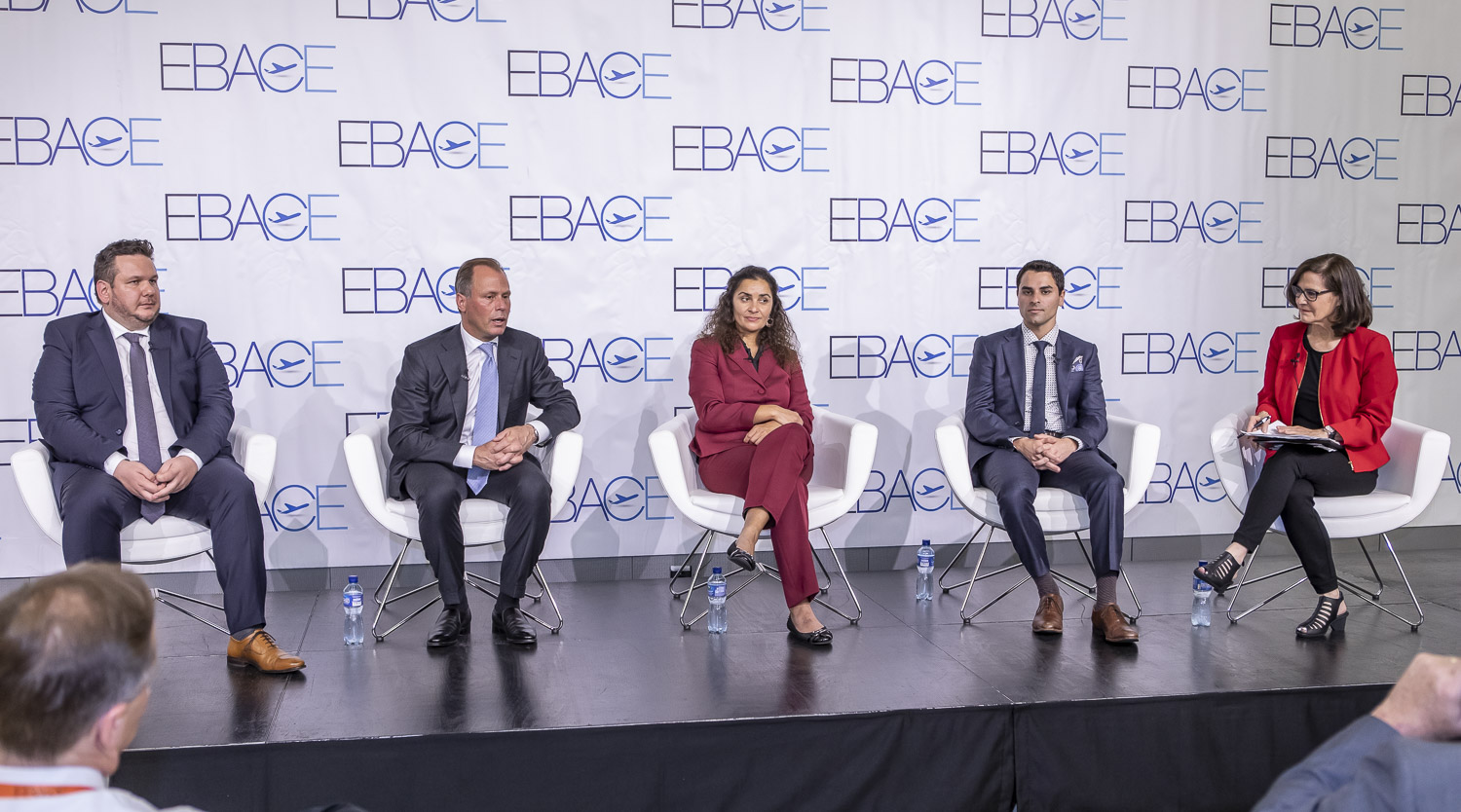EBACE2022: Industry Leaders Spotlight Sustainability at Summit Kickoff

23 May, 2022
Executives from companies developing game-changing technologies that can deliver deep emissions reductions made their case at the opening of the inaugural European Business Aviation Convention & Exhibition (EBACE) Business Aviation Sustainability Summit as a new award was announced to decarbonize the sector.
The industry is pushing on many fronts to achieve the Business Aviation Commitment on Climate Change goal of net-zero carbon emissions by 2050.
Erik Lindbergh, founder of The Lindbergh Foundation, announced the Forever Flight Alliance, an award to incentivize efforts worldwide to decarbonize aviation supported by the XPRIZE Foundation, The Prince Albert II of Monaco Foundation and NBAA. Lindbergh said it was a prize that led to the historic 1927 New York-to-Paris flight by his grandfather, Charles Lindbergh, and challenges have been instrumental in making private space flight possible.
The conversation, moderated by Emmy and Peabody Award-winning aviation journalist Lisa Stark, included companies developing battery-powered and hydrogen-based aircraft, new kinds of sustainable aviation fuel, and market-based efforts to reduce flight emissions. Executives from the companies said sustainable aviation fuel (SAF) was just an initial step to reducing flight emissions.

Alder Fuels CEO Brian Sherbacow said the key to sustainability progress was continuing to work on complementary technologies.
Tine Tomažič, CTO and director of R&D for Pipistrel Aircraft, the maker of the first certified electric aircraft, said SAF would be a stepping stone to aircraft that run on batteries.
Former NASA engineer Anita Sengupta, CEO of Hydroplane, said hydrogen fuel cell powered aircraft would ultimately prove better than batteries on cost and efficiency. Tomažič argued that batteries, critical to the phones we rely on today, will continue to advance. He predicted electric aircraft would ultimately be able to power flights lasting two or three hours.
The executives agreed technology efforts would benefit more from “carrots” than “sticks.” Kennedy Ricci, president of 4AIR, a sustainability rating system for business aviation that provides carbon offsets, argued a “little of both” would be effective to accelerate action.
The key to decarbonizing aviation, Tomažič said, would be tenacity. “We have to stay determined and motivated,” he said.
The Sustainability Summit continues with panels about the SAF market and OEMs discussing their efforts to make aircraft more efficient. EBAA also is unveiling the new Standards and Training for Aviation Responsibility and Sustainability (S.T.A.R.S.) program, which is focused on spreading the use of best practices to improve sustainability levels across the business aviation industry.
The summit continues Tuesday with a newsmakers breakfast focused on aviation’s battery-powered future, the launch of IBAC EX, the Business Aviation Carbon Exchange and a luncheon about the promise of carbon reduction through emerging eVTOL technologies.



